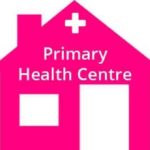Representational Image
The May Measurement Month is an effort to create awareness and encourage people to get checked at regular intervals
New Delhi, May 08, 2018: May 2018 has been declared as the Measurement Month worldwide by doctors to get more people to pay closer attention to their blood pressure and avoid the silent killer called hypertension. Hypertension is defined as sustained high blood pressure over five weeks or more. The condition shows no real symptoms and can lead to complications such as kidney failure, stroke and even blindness in the longer term.
India has about 200 million adults with hypertension. Of this, only 40% are aware of the condition and only 20% take measures to tackle it. In light of this, a worldwide public screening initiative was signed by the Indian Council of Medical Research (ICMR) along with other stakeholders as part of the May Measurement Month.
Speaking about this, Padma Shri Awardee, Dr K K Aggarwal, President, Heart Care Foundation of India (HCFI), said, “In India, it exerts substantial public health burden on cardiovascular health status and the health care system. Hypertension is estimated to account for 10.8 percent of all the deaths and 4.6% of DALYs in the country. The adult Hypertension prevalence has shown a drastic increase in the past three decades in urban as well as rural areas. It is important to get an annual checkup done after the age of 30 even if you have no family history of hypertension, are not diabetic or don’t have any other lifestyle-related disorder. For those in the high-risk category, a checkup is advised every month. Hypertension can be prevented provided a person makes necessary lifestyle changes right at the outset. The aim of May Measurement Month is to spread the message of prevention and encourage people across various age groups to check their blood pressure at regular intervals.”
Although rare, some symptoms of hypertension can include dizziness, shortness of breath, headaches, fatigue, and sometimes chest pain, palpitations, and nosebleeds.
Adding further, Dr Aggarwal, who is also the Vice President of CMAAO, said, “High blood pressure imposes an up-front burden in people who know they have it and who are working to control it. It adds to worries about health. It alters what you eat and how active you are, since a low-sodium diet and exercise are important ways to help keep blood pressure in check. Some people need medication and may need to take one or more pills a day, which can be a costly hassle.”
Some tips from HCFI.
- Achieve and maintain a healthy weight for your height.
- Exercise regularly.
- Eat a diet that is rich in fruits, vegetables, and whole grains.
- Limit sodium intake to under 2,300 milligrams a day (one teaspoon of salt), and get plenty of potassium (at least 4,700 mg per day) from fruits and vegetables.
- Drink alcohol in moderation, if at all.
- Reduce stress.
- Monitor your blood pressure regularly, and work with your doctor to keep it in a healthy range.







